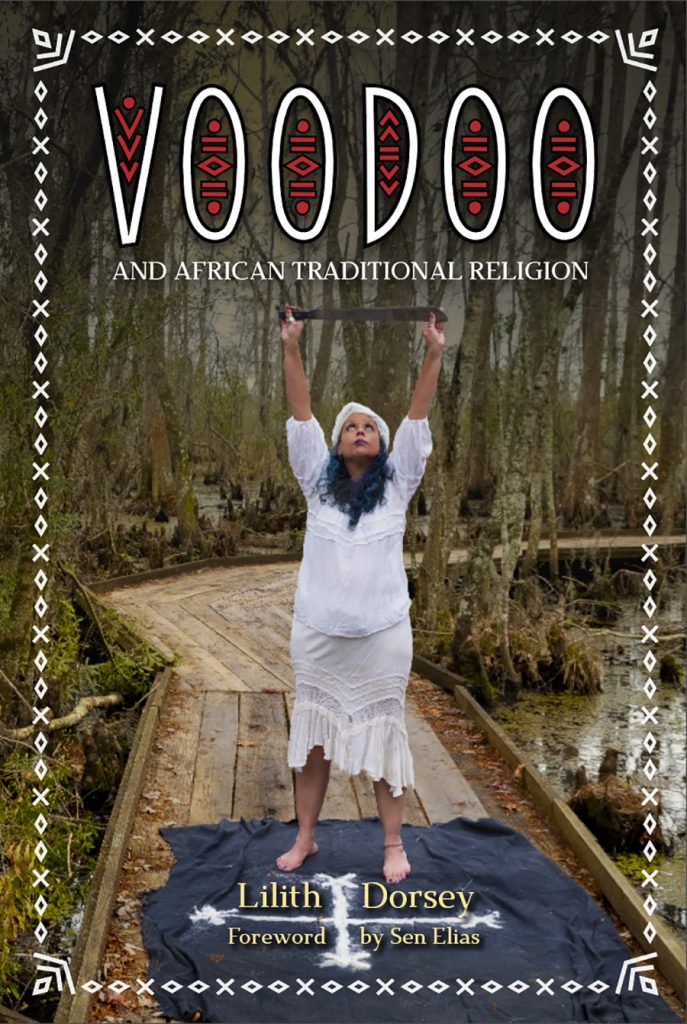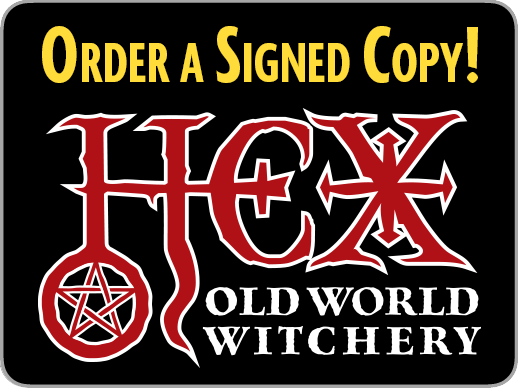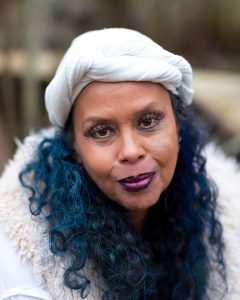by
Reclaim the Ancestral Traditions of African Religion!
In these times of intense turmoil, people of African descent are facing serious threats to their well-being. The ability of Black communities to call on the spirits and ways of their ancestors is crucial to their continued strength. Nearly 20 years have passed since the first printing of this landmark book and there is still a great need for more accurate and respectful information about ancestral beliefs that have been misrepresented, misunderstood, and maligned by popular media and the public.
This revised and expanded edition provides a helpful introduction to the religions of the African diaspora, a guide beyond the basic tenets to the vibrant, living spirit world of their peoples, and a much-needed key to protocol and proper etiquette, while clearing up common myths about Haitian Vodou, New Orleans Voodoo, Santería (Lucumí), and other practices that stem from misconceptions about possession and sacrifice. New material includes guidance for activists to empower their work for social change with the fierceness, tenacity, and wisdom of their ancestors, as well as never-before-published recipes handed down through the generations, personal spells and charms including root magick for protection and protest, and devotional rituals you can perform yourself.
Praise for VOODOO AND AFRICAN TRADITIONAL RELIGION
“It’s hard to find a reliable source of information about the differences between the various African Traditional Religions (ATRs). In the New World, all of the various traditions tend to get lumped under the umbrella term “Voodoo,” making it hard for nonpractitioners to differentiate between them. In Voodoo and African Traditional Religion, Lilith Dorsey tackles this challenge by providing a brief look at the history and practices that make up the major ATRs and doing so with great finesse. From Yoruba, Haiti, and Brazil to New Orleans and beyond, Dorsey provides a nice introduction to these various traditions and religions. I highly recommend Voodoo and African Traditional Religion to anyone who wishes to learn the sacred stories and practices associated with the religions of our Ancestors.”
“I was fortunate to run across an earlier iteration of this book a few years back and am delighted to see it expanded and republished. Lilith Dorsey’s grasp of the differences and similarities of these many African traditions (as well as their American offspring) is much needed as these spiritualities and religions continue to attract new adherents. It is no secret that we are seeing a blossoming of what used to be termed “alternative spiritualities,” but the ones whose roots are in Africa are especially beautiful and powerful—and not as well understood or respected as they should be. Lilith Dorsey’s book will go a long way toward enlightening people who are seeking, as well as educating people (like me) who want to know more. A must-have for your religions and spirituality bookcase—you’ll go back to it again and again.”
“Lilith Dorsey is one of the few sincere and informed scholar-practitioners who is able to synthesize an expansive knowledge of traditional spirituality into a readable narrative that incorporates history, instruction, and practical guidance for anyone wishing to learn more about African and African American religions and magic. With an updated film, recording, and reading list, the book is an excellent resource that addresses the current turn to ancient spiritual wisdom to confront some of our most pressing societal needs.”
“Lilith Dorsey’s second edition of Voodoo and African Traditional Religion is a milestone for the correct information on Africa and their diasporic religions. Too often misunderstood and ostracized, the religions of the African diaspora create bridges and are examples of tolerance, problem-solving, peace, and cooperation between different cultures, nations, beliefs, and lifestyles. Lilith Dorsey is a well-known and respected Priestess and Leader and gives us a simple but deep approach for the reader on the fastest growing underground Religions of modern times. There’s a light in this book that will guide people to a better approach and respect for legacies and differences: a correct understanding.”
“It is not very often that books on African Diasporic spiritual and magical traditions keep my attention beyond the first couple of pages. So, imagine my delight and joy at finding myself devouring this book in one sitting. Lilith Dorsey restored my soul with the thoroughness of this work. Shadowing the travels of souls brought into these continents and islands with impeccable research, Lilith has brought us through centuries of survival and worship. Moving past the big three, Ifá, Santería, and Voodoo, the book takes us into even more spaces where African beliefs took other forms and formats. Including Hoodoo, with a true understanding of its juxtaposition with religion, brought a correct perspective to an often contentious topic.
Lilith’s commitment to documentation, research, oral and written history sings through the pages. I felt like I was back in the library stacks, back when there were some. I could feel the pains and jubilations as Lilith painstakingly addressed the popular media’s handling of these traditions for public consumption. The images evoked in the descriptions were full, rich, and meaningful. I envision this work as a mandatory read in college courses. Voodoo and African Traditional Religion feels like not only a labor of love but a divine order. I highly recommend both this book and its author.”
“Lilith Dorsey’s Voodoo and African Traditional Religion guides us through the basics and common misconceptions of the African diaspora religions, from the Yoruba to the Candomblé, from explaining the divinities to the festivities calendar of each tradition. In this book, Lilith answered several of the curious questions I had about these religions but was too embarrassed to ask—especially the descriptions of the Orishas and Lwa and the clarifications about ceremonies and possessions. During these times of injustice and pain, this book’s offering of the wisdom and history of these traditions may bring more than knowledge for those in need of resistance and protection.”
“Lilith Dorsey’s Voodoo and African Tradition Religion provides a welcome overview of African spiritual practices. Lilith writes knowledgeably from the perspective of both a long-term scholar and from lived experience as a priestess. Dorsey carefully points out that each Vodou society practices differently and, with that in mind, offers principles, practices, formulas, ingredients, and simple rituals that allow those who are sincerely interested in getting their feet wet. It is always refreshing to discover a new resource that replaces misconceptions about these much-maligned and sensationalized religions with respectful information focused on the beautiful, life-affirming qualities of spiritual practices that have helped people find hope, healing, and survival. As always, thank you, Lilith Dorsey, for your dedicated Service and Work.”
“Lilith Dorsey has given us a tremendous gift in their book Voodoo and African Traditional Religion. As a practitioner and anthropologist, Lilith communicates the sacred teachings of African traditional religions with one foot in the social sciences and one foot in sacred space. Their approach to introducing readers to the many diverse faiths of Africa is accurate, clear, and real. Lilith’s passion for presenting traditions in a non-sensationalistic manner is clearly seen in their work as they describe the respect and consideration they have—and we all should have, for these living traditions.”
“For years the very few books on African traditions and Caribbean religions have been written by outsiders of these religions—treated like an exotic product and taken from people of color to be exploited and consumed by the general public. Rarely do we find a book on the subject written from the perspective and experience of a true practitioner. Finally, Voodoo and African Traditional Religion provides one of the few books on African spiritual and magical practices written by a woman of color with years of experience and international recognition within the field. Lilith Dorsey explains everything you need to know about the traditions of the African diaspora. You will understand the stories behind the Orixa, the Loa, and the Spirits associated with the Ifá, Yoruba, Vodou, Candomblé, Voodoo, and Hoodoo traditions and discover the history and culture behind these paths. The book culminates in a magickal manifesto of black spiritual liberation, including techniques for protection and protest in the modern age, where people of color continue to face challenges simply due to the color of their skin. Voodoo and African Traditional Religion is a true compilation of black culture and black religion—written by a black woman.”
“No one makes New Orleans Voodoo more accessible and approachable than Lilith Dorsey. Do you have questions about Vodou, Santeria, and Hoodoo? This book is the best place to start. A must-have book for the library of every well-read magickal practitioner.”
“Groundbreaking...Engages the head with extensive accounts of the diasporic African religions, the hands with useful, practical descriptions of their magic and spellcraft, and the heart with wise advice.”
“An enlightening and immersive guide full of helpful information for both beginners and longtime practitioners. Lilith does a great job of presenting a wide variety of intriguing facts and experiences that are sure to capture the interest of any soul that is seeking on their spiritual journey.”
“If you are looking to begin an in-depth study of African Traditional Religions (ATR) and diaspora, start here. Lilith Dorsey cuts through the superstitions and sensationalism that the white cultural lens has placed on these vast practices with accurate explanations of initiation, sacrifice, and spells. Lilith then sets up would-be students of ATR study for success by sharing their vast knowledge on where to go next for further study. Whether learning ATRs or unlearning media manipulation, I highly recommend this book.”
“Voodoo and African Traditional Religion is filled with insightful historical and archaeological information on Voodoo, Vodou, Hoodoo, and other African Traditional Religions. It offers information on the whole gamut of Deities, Orishas, the Lwa, Saints, and more, making this another must-have, go-to book. For those wanting to research—and possibly find out about working with—the systems covered, this book brings deep insights into its many offerings and includes many spells and rituals. Lilith also recognizes and highlights those who have paved the way for African spiritual practices. This book will undoubtedly be referred to as one of the most comprehensive titles on the topic, and I will certainly recommend it to my students.”
“The original incarnation of this book was a complex combination of survey, glossary, comparison and was liberally sprinkled with Lilith Dorsey’s view as an insider and practitioner. With this new edition, Dorsey’s lens is much more provocative, feminist, and revolutionary. It retains the recipe book innocence of the original but is now closer to the Anarchist Cookbook than Betty Crocker. In introducing the reader to the various paths of the African diaspora, this book reveals the genius of the ancestors who escaped slavery and tried to make spiritual sense of a world that had stolen their culture, religion, and their very lives. Lilith’s visceral and pragmatic view of the violence that has plagued Black Lives stands in this new edition—released at a time where the terrible legacy of slavery is at the forefront of the public consciousness, and the descendants of that legacy are rediscovering the spiritual tools of their ancestors. These tools offer new hope at a time when we would otherwise be helpless and hopeless. You don’t have to read between the lines of this book to feel the inspiration that resurrected it makes it rise above a sea of misinformation and mythification that only someone who inhabits this world can truly share. Ese e Pupo, Iya Lilith.”
“Having collaborated and worked with Lilith Dorsey since 1999, I remember when the first edition of this book arrived in 2005. It was truly groundbreaking back then: a mainstream crossover from a Generation X black woman who was among the few you could count on one hand that was immersed in both the African Traditional Religions and the Neo-Pagan community—and an academic as well. Sixteen years later, this still holds true, Lilith Dorsey is still one of the very few black women to have become a prolific presenter across North America in both African Spiritual and Pagan communities as well as a best-selling author—a unique achievement for any person, and so Lilith truly stands alone.
In this newly revised update, Voodoo and African Traditional Religion will take its place once more among the integral books on the subject. This book will educate, inspire, and interact with the reader, and for many, it will lead them unto their destiny among the traditions. Lilith has gifted us with a truly sacred work that is an honor to all those who came before who maintained and preserved the Diasporic religions. The lineage continues.”
“Reading this book is like taking an immersion course in the rich history, culture, and spiritual offerings of traditional African religions. Lilith has not only crafted an informative and much-needed expert resource, dispelling misinformation and stigma around these sacred practices, she has also created a down-to-earth guidebook to empower readers in walking their own spiritual journey.”









